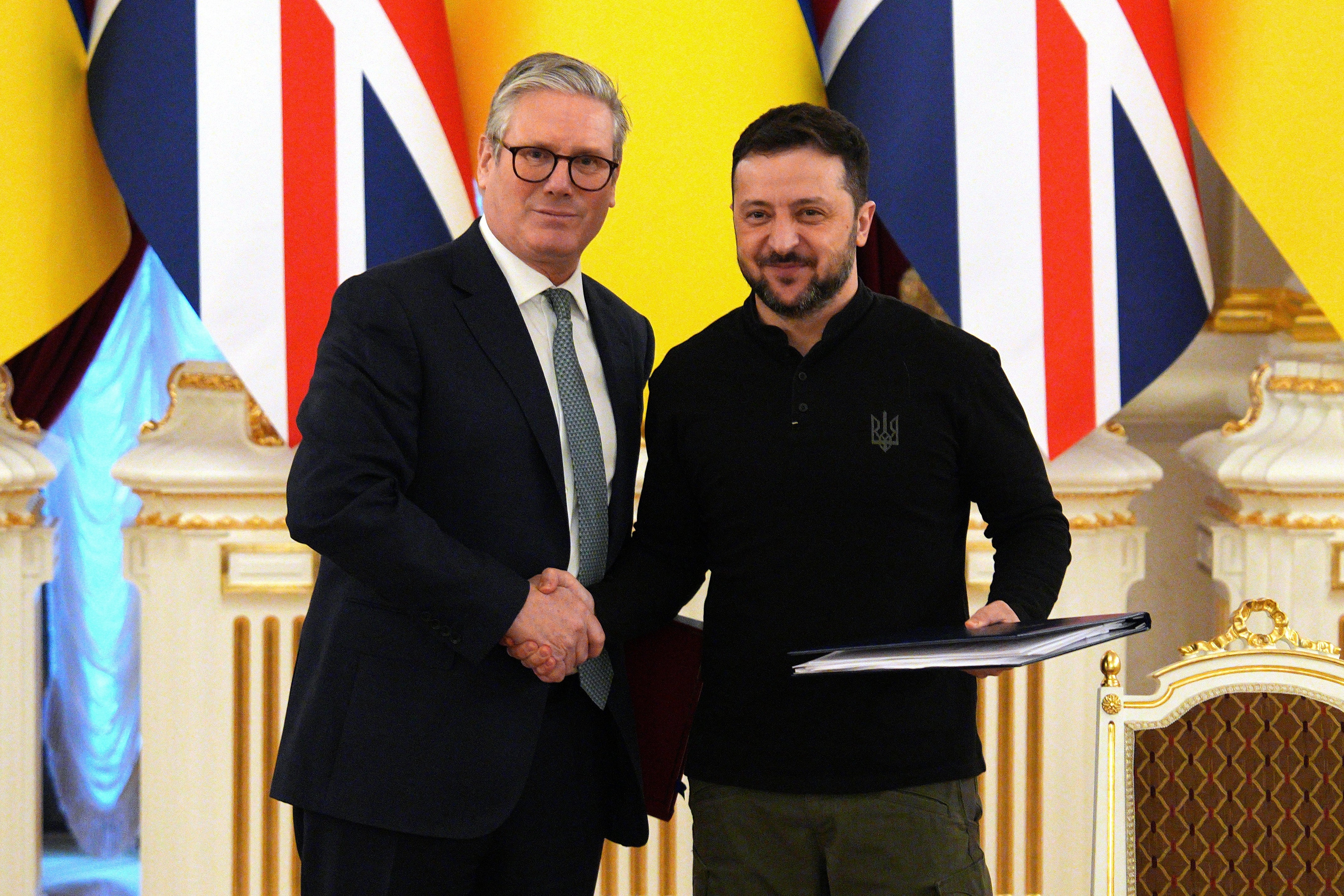Donald Trump was right to bring Russia to the negotiating table over the Ukraine war, the education secretary has said as Sir Keir Starmer prepares to head to the White House for crunch talks.
Bridget Phillipson has defended the US president’s decision to phone Vladimir Putin to start negotiations to end the war, but insisted “there can be no settlement” without involving Kyiv.
Asked whether the UK government agreed with Mr Trump’s decision to contact Mr Putin”, Ms Phillipson said: “It will require negotiation with the Russians through part of the settlement, so I do think that is the right approach.
“President Trump has brought the Russians to the table, but any lasting settlement when it comes to peace does require Ukrainian voices, President Zelensky’s voice, to be a part of that.
“There can be no settlement unless we have a negotiation involving both Russia and Ukraine.”
Her comments on BBC’s Sunday With Laura Kuenssberg programme come as the prime minister is set to meet Mr Trump for talks in Washington this week, in which Sir Keir is expected to stop a growing rift between Europe and the US over support for Volodymyr Zelensky.

On Monday, Britain is expected to hit Russia with a “triple whammy” of measures to mark the third anniversary of Putin’s invasion, including the fresh sanctions as well as military aid and a crackdown on Russian dirty money in the UK.
Ms Phillipson played down the significance of the US visit coming after those made by the leaders of France and Poland.
Asked whether the relationship between the UK and US was “not that special” given other European leaders were meeting Mr Trump before Sir Keir’s trip, telling Sky’s Sunday Morning With Trevor Phillips programme: “I don’t think that really matters.
“I think what we know is that President Trump really values the relationship with this country.
“We value the relationship… and this week, out of the US, the prime minister will be setting out how we will back a negotiated settlement that we want to secure, make sure that we play our full part in that, but of course, build on those ties that exist between our nations and what more we can do together.”
She insisted the “facts speak for themselves” that Mr Zelensky was democratically elected amid questions about why the UK government has not condemned Mr Trump’s claim that the Ukrainian president is a “dictator”.
“The prime minister has set out the position of the UK government, which is that we recognise President Zelensky was elected by the Ukrainian people,” she added.
“We think he’s doing a tremendous job in the face of terrible Russian aggression that his nation has faced, and it is of course right that in a period of war elections don’t take place.”
Sir Keir is also expected to confirm a timeline to raise Britain’s defence spending from 2.3 to 2.5 per cent of GDP when he visits Washington, as well as giving Mr Trump an invitation for a state visit from the King.
Asked whether the prime minister would tell Mr Trump Britain will spend “much more” on defence amid US demands for Europe to shoulder more of the burden over its own security, Ms Phillipson said: “We will be spending much more on defence, and our allies need to step up alongside that.
“But let’s be clear, 2.5 per cent is ambitious. We will get there, but it is ambitious, and this is also in the context of the public finances which, let’s be honest were left in a devastating state by the Conservatives – a £22 billion black hole, no credible plan for this nonsense that they claim around how they were going to reach 2.5 per cent.”
Shadow defence secretary James Cartlidge backed Sir Keir ahead of the meeting, but suggested the UK Government may need to reallocate funds from the Civil Service to boost defence spending.
However, former foreign secretary Lord William Hague warned Mr Trump may be making a “historic mistake” by sidelining Ukraine from peace talks.
“I’m very worried about Donald Trump’s approach because, of course, it’s a good thing to try to end a war,” the new Chancellor of the University of Oxford told Laura Kuenssberg.
“But the only way to end this war in a way that doesn’t encourage future wars is to give as much support as we possibly can to Ukraine, to show Putin that a war of aggression will never succeed.
“Having meetings with the Russians without the Ukrainians even represented, is, I think, the wrong way to go about it. That will raise the hope of the Russians that they will end the war on their terms.
“Then there is the great danger that in ending this war, they would be creating the scene for a wider war in the future.
“So I think there could be a historic mistake being made here from Washington, and as a former foreign secretary, I’m extremely concerned about it.”

